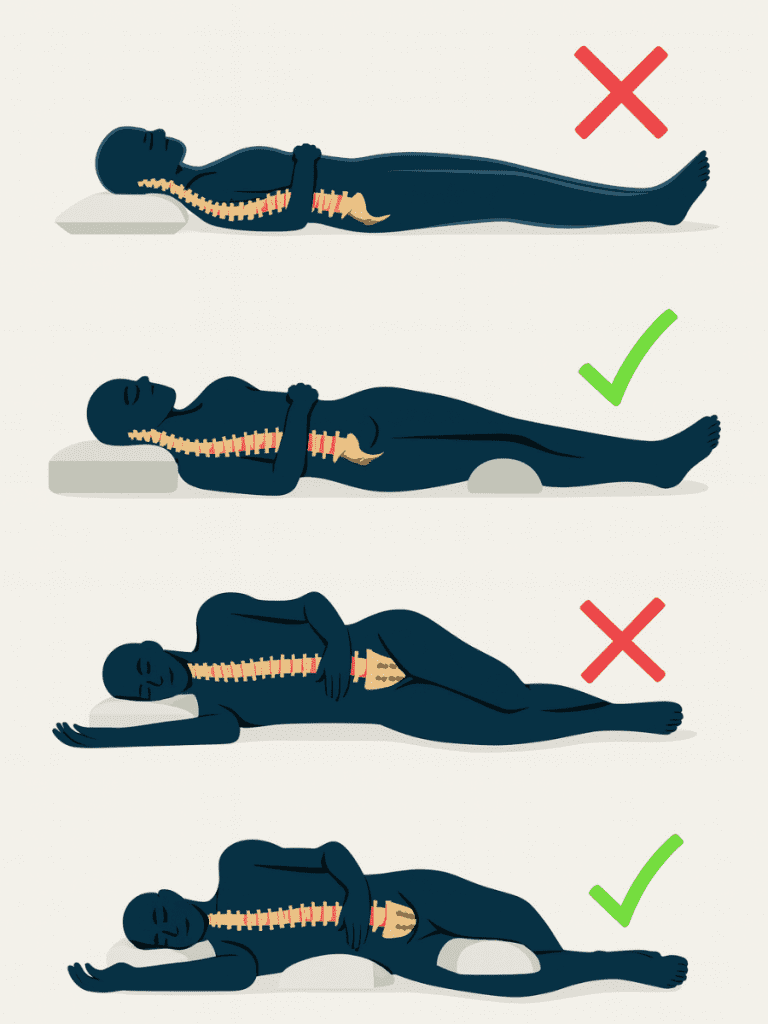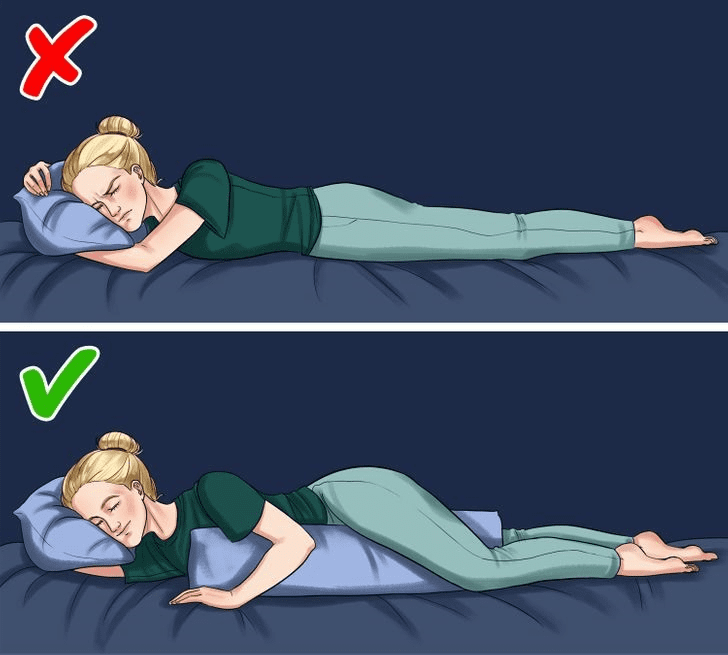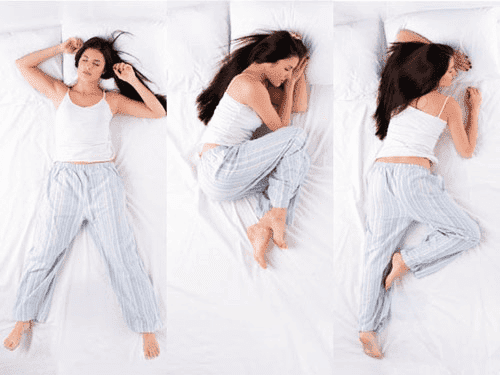Sleep. It’s the one thing we all crave after a long day, yet it’s often the most overlooked piece of the health puzzle. You’ve perfected your morning smoothie, hit the gym, and meditated to manage stress—but have you ever stopped to think about how you’re sleeping? The way you position your body during those precious hours of rest can make or break your health, affecting everything from your spine to your digestion and even your breathing. Intrigued? You should be. Let’s unravel the surprising ways your sleep posture could be silently shaping your well-being—and how small tweaks can lead to transformative results.

The Hidden Power of Sleep Posture
We spend roughly one-third of our lives asleep—about 25 years for the average person. That’s a staggering amount of time with your body locked in a single position. Yet, most of us don’t give a second thought to how we’re lying in bed. The truth is, your sleep position isn’t just about comfort; it’s a critical factor in your overall health. Poor posture during sleep can lead to chronic pain, disrupted digestion, restricted breathing, and even nerve damage over time. On the flip side, the right position can enhance your energy, reduce discomfort, and set you up for a healthier tomorrow.
Why does this matter? Because sleep isn’t just about closing your eyes—it’s about giving your body the chance to repair, recharge, and thrive. The wrong position can sabotage this process, leaving you waking up groggy, stiff, or even in pain, no matter how many hours you’ve clocked. Let’s explore the positions that could be holding you back and the ones that can unlock a world of benefits.
🚨 Sleep Positions That Could Be Hurting You
Not all sleep positions are created equal. Some might feel cozy in the moment but wreak havoc on your body over time. Here’s a closer look at the culprits to avoid—and why they’re problematic.
Stomach Sleeping: A Recipe for Pain
Lying on your stomach might feel like sinking into a cloud, but it’s one of the least healthy ways to sleep. When you sleep face-down, your neck is forced to twist to one side just to breathe, putting strain on your cervical spine. Meanwhile, your lower back takes a hit as the natural curve of your spine flattens under pressure. Over time, this position can lead to neck pain, spinal misalignment, and even tension headaches. If you wake up feeling stiff or achy, your stomach-sleeping habit might be the silent saboteur.
Arms Overhead: A Nerve Nightmare
Stretching your arms above your head or tucking them under your pillow might seem harmless, but this position can spell trouble. It restricts blood flow and compresses nerves, leading to that dreaded “pins and needles” sensation in your arms or hands. Regularly sleeping this way can also strain your shoulders, causing discomfort or even long-term mobility issues. If you’re waking up with numb hands or shoulder pain, it’s time to rethink this position.
Curled-Up Fetal Position: Too Much of a Good Thing
Sleeping on your side is often praised, but curling up too tightly—like a ball with your knees pulled to your chest and your chin tucked down—can backfire. This position compresses your lungs, making it harder to breathe deeply, and puts unnecessary strain on your neck and lower back. Over time, it can reduce spinal flexibility and contribute to stiffness or discomfort. The fix? Opt for a looser side-sleeping position with a slight bend in your knees to keep your body aligned and relaxed.

🌟 The Gold Standard: Why Left-Side Sleeping Wins
If there’s a superstar of sleep positions, it’s sleeping on your left side. Experts consistently rank this posture as the healthiest for most people, and the science backs it up. Here’s why left-side sleeping is a game-changer:
- Boosts Digestion: Gravity works in your favor, helping your stomach and pancreas process food more efficiently. This can reduce bloating and improve nutrient absorption.
- Enhances Circulation: Sleeping on your left side takes pressure off major blood vessels, making it easier for your heart to pump blood. This is especially beneficial for pregnant women or those with high blood pressure.
- Reduces Acid Reflux: By keeping your stomach below your esophagus, left-side sleeping helps prevent acid from creeping up, easing symptoms of heartburn.
- Aligns Your Spine: This position naturally supports the spine’s curvature, reducing strain on your back and promoting better posture.
- Improves Breathing: Left-side sleeping opens up your airways, making it easier to breathe deeply—especially helpful for those who snore or have mild sleep apnea.
If you’re not a natural side sleeper, don’t worry. Transitioning to this position is easier than you think, and a body pillow can make all the difference by providing support and keeping you comfortable.
🛌 How to Optimize Your Sleep Posture Tonight
Ready to transform your sleep and, by extension, your health? You don’t need to overhaul your entire routine—just a few strategic tweaks can make a world of difference. Here are practical, science-backed tips to improve your sleep posture starting tonight:
Choose the Right Pillow
Your pillow is more than a fluffy accessory—it’s a critical tool for spinal alignment. A pillow that’s too high or too low can tilt your head out of alignment, leading to neck pain or stiffness. Look for a pillow that keeps your head and neck in a neutral position, aligned with your spine. Side sleepers may need a thicker pillow, while back sleepers should opt for something medium-firm to support the neck’s natural curve.
Support Your Hips and Knees
If you sleep on your side, placing a pillow between your knees can work wonders. This simple trick keeps your hips aligned, reducing strain on your lower back and preventing your top leg from pulling your spine out of whack. A firm pillow or even a rolled-up towel can do the job.
Invest in the Right Mattress
Your mattress plays a starring role in sleep posture. A bed that’s too soft lets your body sink, throwing your spine out of alignment, while one that’s too firm can create pressure points. A medium-firm mattress is often the sweet spot, offering enough support to keep your spine aligned while cushioning your joints. If a new mattress isn’t in the budget, consider a mattress topper to improve comfort.
Create a Sleep-Friendly Environment
Your bedroom sets the stage for quality rest. Keep it cool (around 60-67°F is ideal), dark, and quiet to promote deeper sleep. Blackout curtains, a white noise machine, or even earplugs can help create the perfect sleep sanctuary. And don’t forget to limit screen time before bed—blue light from phones and tablets disrupts melatonin production, making it harder to fall into a restful slumber.
Train Your Body for Better Habits
Switching sleep positions takes time, especially if you’ve been a stomach sleeper for years. Start by consciously positioning yourself on your left side as you drift off. A body pillow can act as a gentle reminder to stay in place. Over time, your body will adapt, and you’ll wake up feeling more refreshed.

💡 The Bigger Picture: Sleep as a Health Superpower
Your sleep position isn’t just about comfort—it’s a powerful lever for improving your health. From reducing chronic pain to supporting digestion and boosting oxygen flow, the way you sleep can have a ripple effect on how you feel and function every day. Poor posture during sleep can quietly chip away at your well-being, while the right position can unlock a cascade of benefits, from better energy to less discomfort.
But it’s not just about the position itself—it’s about creating a holistic sleep routine that prioritizes quality and alignment. By pairing a healthy sleep posture with a supportive pillow, a good mattress, and a rest-friendly environment, you’re setting yourself up for rest that truly restores.
🌙 Take Control of Your Sleep Tonight
As you slip into bed tonight, take a moment to check in with your body. Is your spine aligned? Are your joints supported? Could a small shift in position make you feel better tomorrow? These questions might seem small, but their answers can lead to profound changes in how you feel each day.
Good sleep isn’t just about clocking hours—it’s about making those hours count. By prioritizing your sleep posture, you’re investing in a healthier, more vibrant you. So, why wait? Start experimenting with these tips tonight and discover the difference a better sleep position can make. Your body will thank you.









